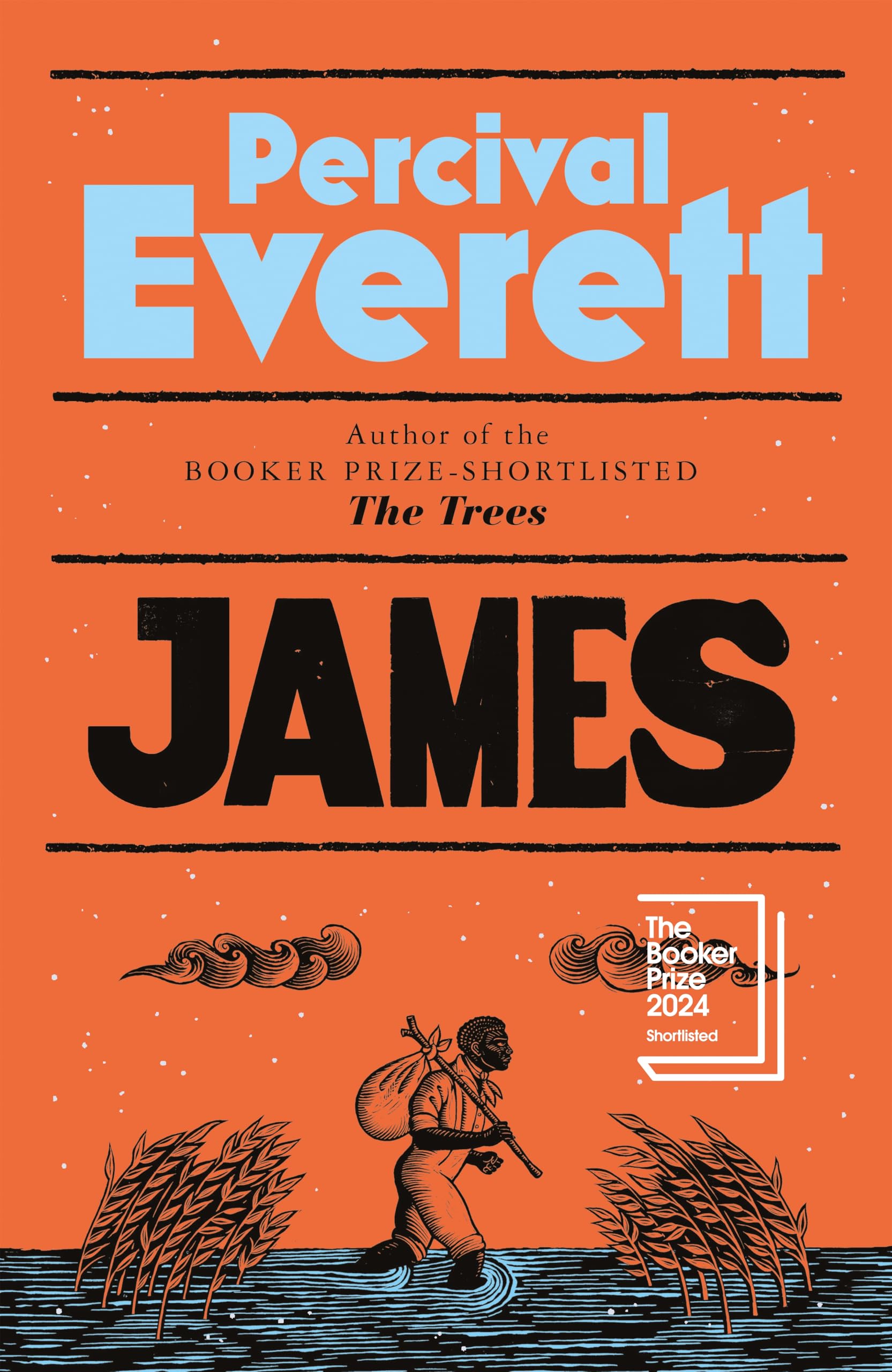Strange, barbed, inverted retelling of an American classic by a contemporary American giant

Percival Everett | James | Pan Macmillan: £9.99
Reviewed by Joseph Hunter
I don’t know what to make of this novel. It’s hard to assess it. It’s hard for two reasons. 1) Percival Everett is a superb, distinguished, and significant writer. 2) This novel is already, and will (I think) be considered in future, an important novel for what it says about race and the legacy of slavery on the American popular consciousness.
I also didn’t really enjoy it, and found it unpleasant in places. Let me try to explain what I mean. The only way in which I enjoyed this novel was through the superb skewering of perspective that it presents. Here you have a retelling of The Adventures of Huckleberry Finn so barbed and deft as to require a reappraisal of the original novel. Good, good. It’s dizzying – and not in the way that you’d expect, which is that it humanises ‘Jim’ (James) provocatively, presenting iconic American literature peeled on a silver platter. Rather it’s dizzying because – for this white, un-American, male reader – it presents the crass truth of the slavery system in horrible terms: as a real system in the not-very-distant past, and very like a fat surging river, carrying all with it. All of us are floating on it.
Yet the book is unenjoyable. And I don’t mean that it’s clumsy or wrong. I don’t mean that it’s failing in its principles, aims, or losing the brief. I mean that it isn’t good to read and the prose is flat and downright strange where it should be most powerful.
Here’s an example that stuck in my mind. James and his white-passing friend end up near the same riverboat that has Huck on it (James learns later). To board the boat James and his pal almost die – they have their little boat and row up to the big boat. Chaos. The boat bears down on them; there is a problem of scale; the river is dangerous; they are almost crushed and killed. Here’s how it’s written:
I looked to see that this vessel was a side wheeler and that the paddle was churning the water behind us. I could feel the wheel pulling on. The sight of the paddle tearing up the water was terrifying. The skin of my hand was scraped badly as I tried to grab the huge rope draped on the side of the ship.
I won’t dwell on this, but for a novel that is quite light on narrated action this is weird. Why under-describe, but then tell me that the sight of the paddle ‘was terrifying’ – and affectless, too, so you lose the minimalist effect and also the chance to feature affect and make that the principle? Why deal with such a huge moment in a single paragraph of barely-described action if you aren’t going to go all-out? What does it sound like, feel like, look like? A giant paddle, beating in the dark? Isn’t there more? The prose neither embodies nor evokes the emotion that it requires. I am obliged to supply the necessary affect myself, consciously.
This flatness has to be a decision. I cannot accept otherwise. And so, I’m forced to confront the idea that there are novels that I am expected not to enjoy in order that some other purpose is served. And the purpose isn’t experimental or to do with form – this book is nothing if not accessible. There is simply almost nothing in the subject matter or style that is aesthetic. You can’t pretty-up slavery. Or, rather, you can, but you can also choose not to. Percival Everett is a writer of stature and he’s making me look, and not look away. It’s not pretty. It’s rather ugly. I don’t much like it. But I’m glad this novel exists.
Reviewed by Joseph Hunter
